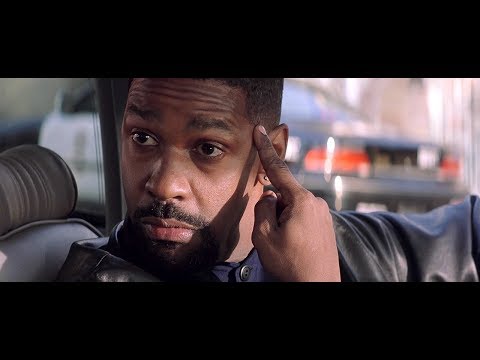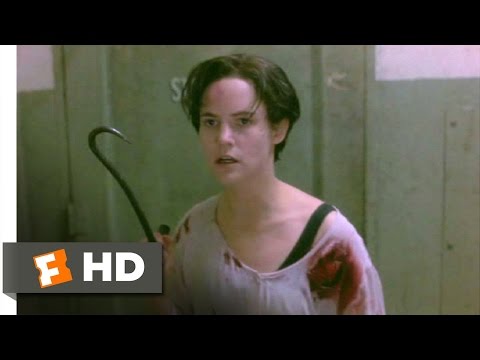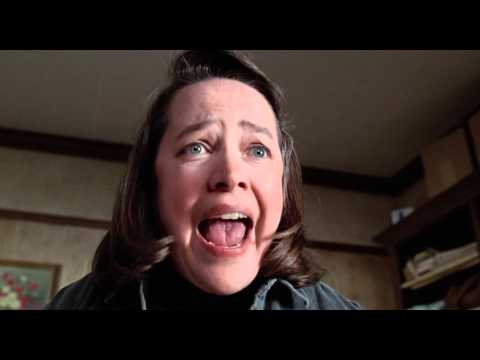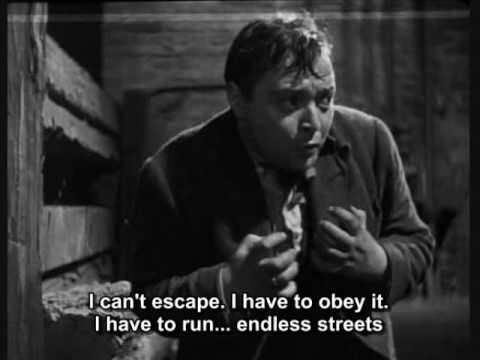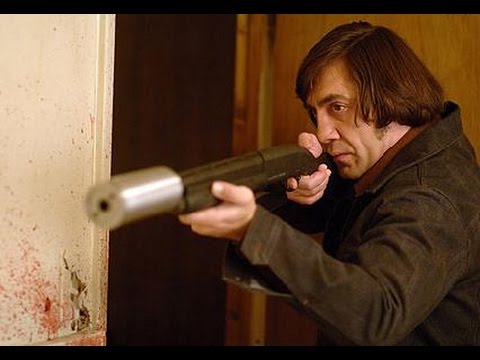Dr. Kevin Dutton, who has spent a lifetime studying psychopaths, explains their personality characteristics include: ruthlessness, fearlessness, impulsivity, self-confidence, coolness under pressure, charm, charisma, reduced empathy, and lack of conscience. They are able to wreak havoc and, often, kill without any signs of remorse. Yet psychopaths on the big screen are not always accurate. In 2014, Belgian psychiatry professor Samuel Leistedt and his team set out on a mission to watch more than 400 movies, spanning from 1915 to 2010, in three years and report back which characters truly embodied psychopathy.[1] In total, they found 126 believable psychopathic characters – only 21 were female. Surprisingly, Leistedt said Patrick Bateman in “American Psycho,” Norman Bates in “Psycho,” and Hannibal Lecter in “Silence of the Lambs” don’t quite fit the psychopath archetype – he explained they are more of a “universal boogeyman.” So, if these terrifying characters don’t make the cut for real psychopathy, then these following characters really are truly evil. 10 Monumental Malignantly Narcissistic Sociopaths
10 Alonzo Harris
“Training Day” (2001) is the ultimate good cop meets bad cop movie set against a backdrop of paranoia, gang culture, and police corruption in South Central Los Angeles. Over a 24-hour period, Alonzo Harris (Denzel Washington) attempts to teach rookie cop Jake Hoyt (Ethan Hawke) the ropes. Alonzo puts Jake through a series of moral tests to measure his strength his character. One of the many psychopathic traits Alonzo possesses is his ability to overstep all kinds of professional and personal boundaries. Psychopaths typically do not respect social norms and look for weaknesses in others they can exploit. Whereas social interactions are a normal pleasantry for most well-adjusted individuals, psychopaths tend to use interactions with others to “get one over them.” Kibeom Lee, a professor at the University of Calgary, explained “(A study of psychopaths) adds to the research showing that certain personality traits can predict the tendency to exploit other people. Traits such as deceitfulness and conceitedness – as opposed to honesty and humility – involve a willingness to take advantage of others when the opportunity arises.”[2] Denzel Washington has frequently said that Alonzo Harris is his favorite character that he’s played.
9 Catherine Tramell
Catherine Tramell in “Basic Instinct” (1992) is a highly intelligent, manipulative, and charismatic novelist. Portrayed by Sharon Stone, both of her parents died in a boating accident leaving her with an inheritance of $110 million. In “Basic Instinct 2” (2006), Dr. Michael Glass, portrayed by David Morrissey, reveals in his analysis that Catherine is addicted to risk. “I believe Ms. Tramell’s behavior is driven by what we might call a risk addiction. A compulsive need to prove to herself that she can take risks and survive dangers that other people cannot. Especially the subsequent encounters with the police, the powers that be. The greater the risk, the greater the proof of her omnipotence,” he explains.[3] Most high-functioning psychopaths have a genetic predisposition to fear. It takes a lot, if anything at all, to make them feel afraid, so, they take higher risks to get their kicks. This often results in innocent people becoming tangled in their game playing and, unfortunately, they come out worse for it. In the words of Catherine herself: “I have a degree in psychology, it goes with the turf… Games are fun.”
8 Gordon Gekko
Gordon Gekko (Michael Douglas) in “Wall Street” (1987) is the epitome of the corporate psychopath. He is a successful businessman, having founded the investment corporation Gekko & Co., and has a fictional net worth of $650 million. As Gordon announces during a seminar, “Greed is good.” At the very top of the corporate ladder is where you will statistically find the most psychopaths; roughly 4% to 12% of CEOs exhibit psychopathic traits, which is staggering if you consider the rate of psychopaths found in prisons is roughly 15%. According to psychologist Kevin Dutton, the top four career choices for psychopaths are CEO, attorney, media personality, and salesperson. In their ground-breaking book “Snakes in Suits,” Paul Babiak and Robert Hare revealed that most of the workplace conflicts stemmed from having a psychopathic leader at the top. They write, “Psychopathic workers very often were identified as the source of departmental conflicts, in many cases, purposely setting people up in conflict with each other. ‘She tells some people one story, and then a totally different story to others.’”[4] These psychopaths at work are essentially the ‘puppetmaster’ and Gordon Gekko is a perfect example of this.
7 George Harvey
In “Lovely Bones” (2009), the murder of 14-year-old Susie Salmon (Saoirse Ronan) leaves her spirit watching over her devastated family. Susie tries to communicate from the “the in-between” that the real killer is George Harvey (Stanley Tucci). There are many creepy traits about George who prefers to be alone obsessing over his collection of dollhouses. We soon discover that near the school is his underground lair where he lures young girls to their death. Yet George is a typical psychopathic serial killer as he is “hiding in plain sight.” Former FBI agent John Douglas explained, “We can’t get past the preconceived notion that these violent offenders should be drooling or have a third eyeball. They get away with murder in (the U.S.) 20 to 50 serial killers are on the loose at any time, killing three or more victims.”[5] To prepare for the role, Tucci spent two days role-playing with Douglas in an FBI agent/serial killer scenerio. The aim was to show psychopaths as they really are; more human than monster. It clearly worked as Tucci was nominated for an Academy Award for his authentic performance.
6 Sergeant William James
“The Hurt Locker” (2008) introduced us to Sergeant William James (Jeremy Renner) and his work in the Explosives Ordnance Disposal unit. Sgt. James creates tension within his team due to his reckless disposal methods and laidback attitude in the face of fatal injury. Despite these high-intensity situations, he is able to compartmentalize the weight of this stress in his mind and move on to a new task seemingly unaffected. This is in contrast with his teammate, Specialist Owen Eldridge (Brian Geraghty), who visits a psychologist to help deal with the stress of combat. Sure, being able to focus under pressure is helpful for a bomb disposal technician but this is also one of the signs of psychopathy. In the essay “What Psychopaths Can do that Everyone Else Can’t”, Dr. George Simon explains, “I argue that even more insidious than the lack of conscience and empathy that characterizes most psychopaths, is the ability of some to compartmentalize emotion. They look like they can feel, hurt, and empathize just like anyone else. What a shock it is (sometimes a deadly one) when it becomes apparent how easily they can switch off any caring.”[6] 10 Insanely Common Misconceptions About Psychopaths
5 Hedra Carlson
Hedra Carlson (Jennifer Jason Leigh) is the main antagonist in “Single White Female” (1992). Like Catherine Tramell, Hedra uses male lust to her advantage. Leistedt’s research team found that many on-screen female psychopaths are portrayed “as scheming manipulators whose main weapons are sexual.” They are able to use male sexual desire to their own advantage. Hedra is also a pathological liar and, like most psychopaths, she is able to lie so well that the listener begins to doubt themselves, even in the face of contrary evidence. Psychopaths behave this way so they have all the power in the relationship. Preston Ni, author of “How to Communicate Effectively and Handle Difficult People” writes, “In their desire for ever more power (over relationships) psychopaths will literally make up and say anything in order to achieve their aims. Blatant lies, distortions, deceptions, broken promises, and blaming the victim are just some of the common devices used to enable the psychopath to advance his or her aggressive and unscrupulous schemes.”[7]
4 Annie Wilkes
In the 1990 film adaption of Stephen King’s “Misery”, Annie Wilkes (Kathy Bates) traps famous writer Paul Sheldon (James Caan) in her home because she is his “number one fan”. The character of Annie is characterized by violent mood swings – either overbearingly sweet or flies into a violent temper. Also, she is a complete narcissist. Annie reveals the full extent of her narcissism when she forces Paul to burn his new manuscript because she does not like foul language. She is also furious he has killed off her favorite character so she insists he rewrites the novel and brings the character back to life. Not all psychopaths are narcissists and not all narcissists are psychopaths; yet it’s Annie’s scheming and manipulative ways that show her psychopathic side. She will stop at nothing to get what she wants. You can also test if your partner is a psychopath by making them watch the hobbling scene and if they don’t look away, well, they just might be.[8]
3 Hans Beckert
In the opening scene of “M” (1931), Hans Beckert (Peter Lorre) lures a little girl to her death. The city of Berlin is in panic as the police reveal there is a sadistic pedophile and serial killer on the loose. This German thriller is widely considered one of the greatest films of all time. Due to his charismatic personality, Beckert is capable of killing without detection for long periods of time. Like George Harvey, he is able to adopt a chameleon-like effect and blend in with society; all whilst continuing his monstrous deeds. “Lorre portrays Beckert as an outwardly unremarkable man tormented by a compulsion to murder children ritualistically,” the researchers who identified him as a psychopath wrote.[9] Psychopaths are incapable of ignoring their own impulsive desires. They are addicted to sensation-seeking and are often motivated by a desire for excitement; even if the only thing that is capable of exciting them is extreme violence. Once his true evil is revealed, Beckert pleads, “Who knows what it is like to be me?”
2 Henry
“Henry: Portrait of a Serial Killer” (1986) is based on real-life serial killer Henry Lee Lucas. Michael Rooker stars as the killer is released from prison for murdering his own mother and it’s not long before he returns back to his violent ways. Alongside his partner in crime, Otis Toole (Tom Towles), they both head off on a killing spree which they are able to plan with meticulous detail. In reality, Lucas was convicted of murdering 11 people; however, he claims to be responsible for killing more than 3,000 victims. He picked off his victims at random in the early 1980s whilst drifting across several states with Toole by his side. Lucas blamed his own mother for his psychopathy claiming she would humiliate him and force him to wear girl’s clothing. On one occasion, she would beat him so badly he needed hospital treatment. By the year 1960, he could no longer his mother’s abuse; he struck her with a broom then stabbed her in the neck. He was sent to Ionia State Hospital but made parole ten years later.[10] Rooker’s portrayal of Henry in the film is considered one of the most memorable performances on his career.
1 Anton Chigurh
More than 400 movies later, the experts revealed they found the most believable on-screen psychopath is Javier Bardem’s character Anton Chigurh in “No Country For Old Men” (2007). The researchers wrote, “He seems to be effectively invulnerable and resistant to any form of emotion or humanity.” This adaption of Cormac McCarthy’s novel follows the intersecting lives of war veteran Llewelyn Moss (Josh Brolin), who stumbles upon a drug deal gone bad and $2 million in cash, and professional tracker Anton Chigurgh. Directed by Joel and Ethan Coen, the film won four awards at the 80th Academy Awards including Best Picture. Bardem later revealed, “(Anton) is a guy of his word, in a way, and a symbol, a violent fate that you have called for, the genie out of the lamp. And when violence shows up, it’s impossible to destroy, it only creates misery and pain, and doesn’t get you anywhere. So I said okay, it’s not that I like the guy, but I like the idea behind the guy, I like what he represents.”[11] Top 10 Disturbing Films Featuring Sociopaths Read More: Twitter Facebook
